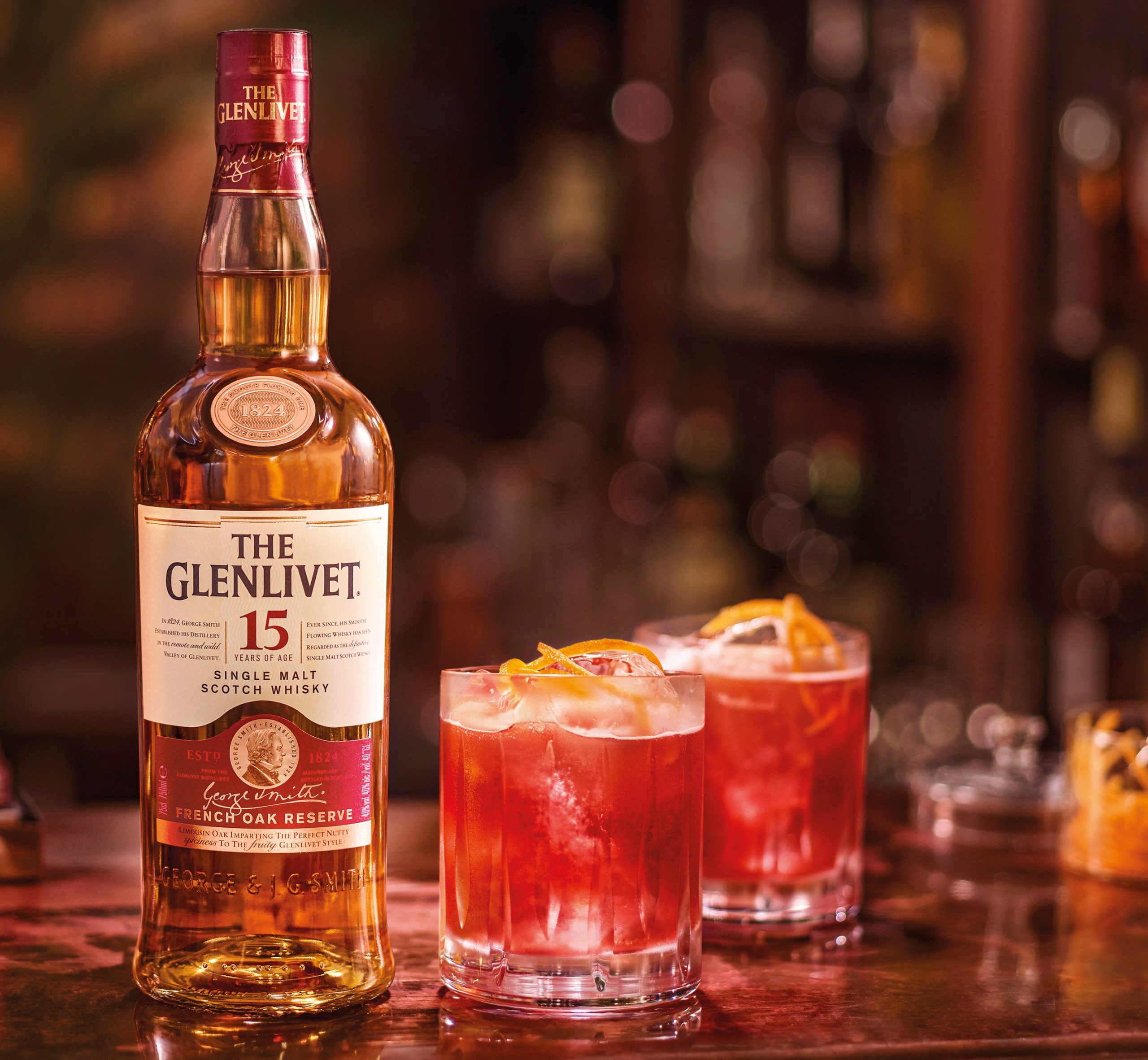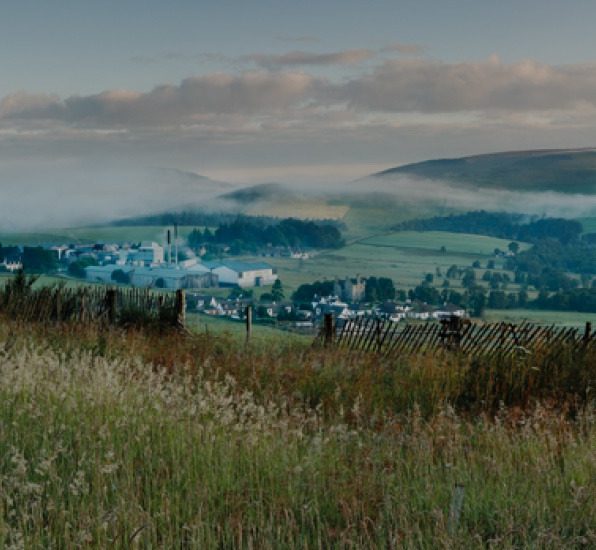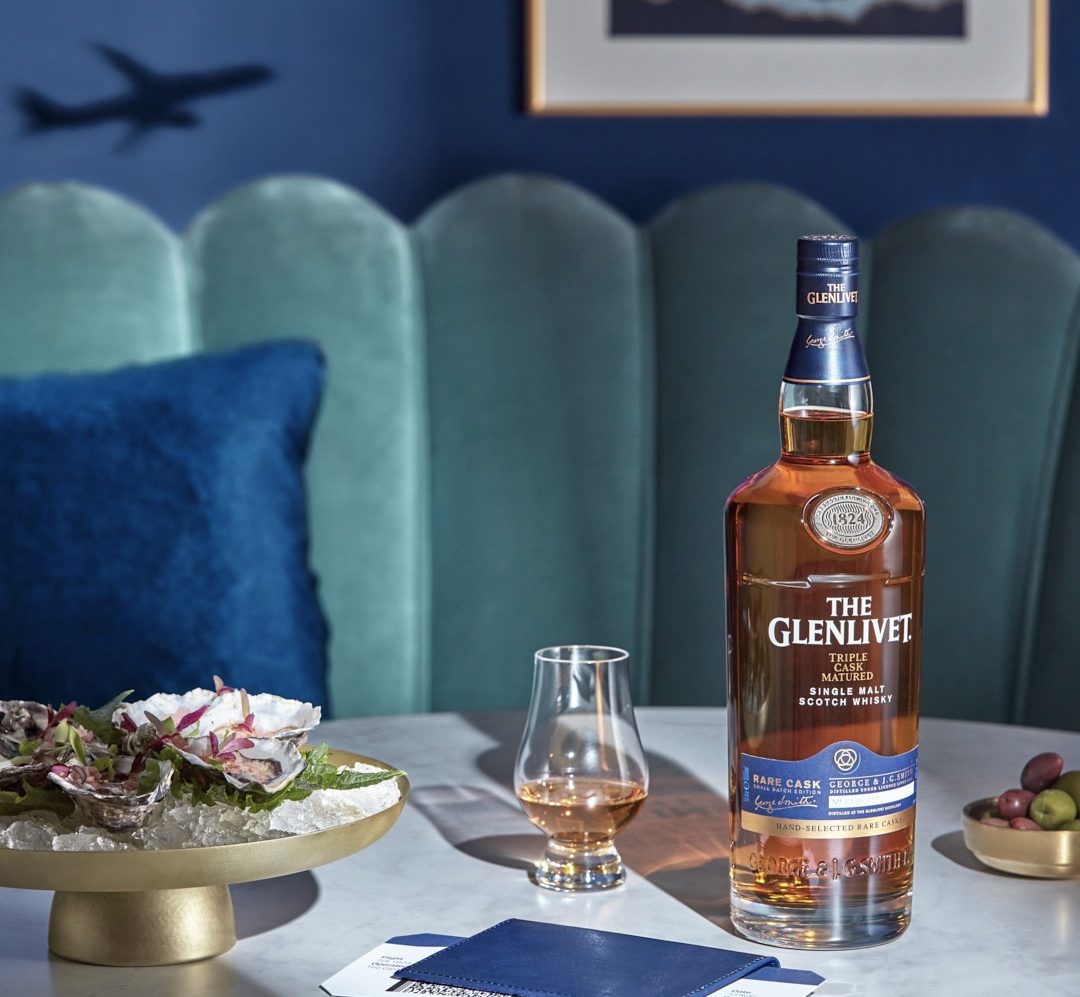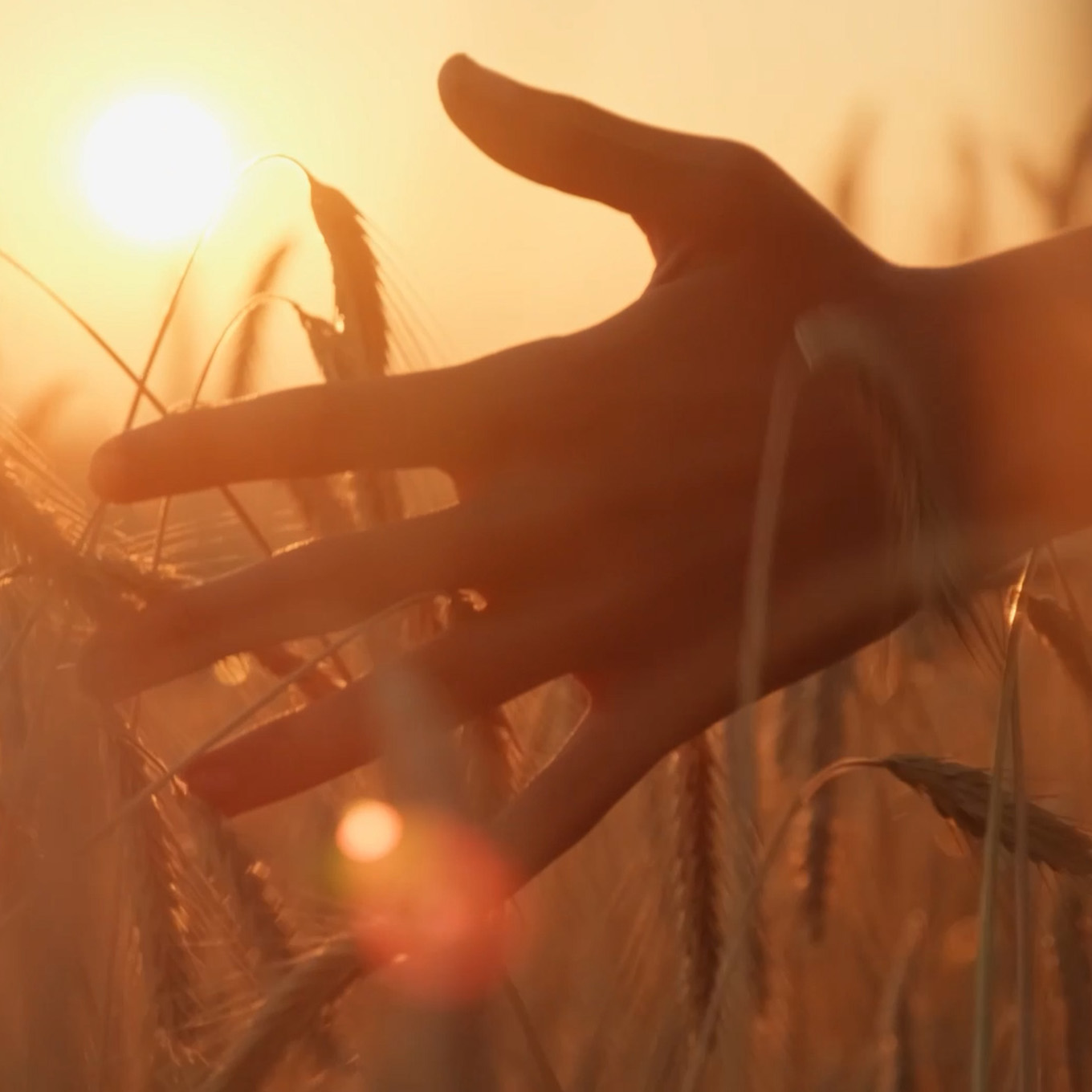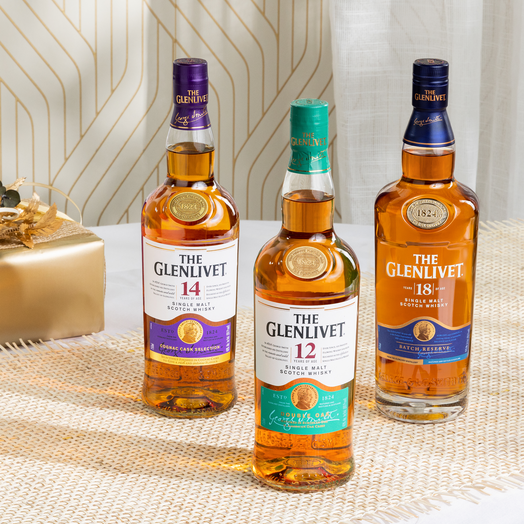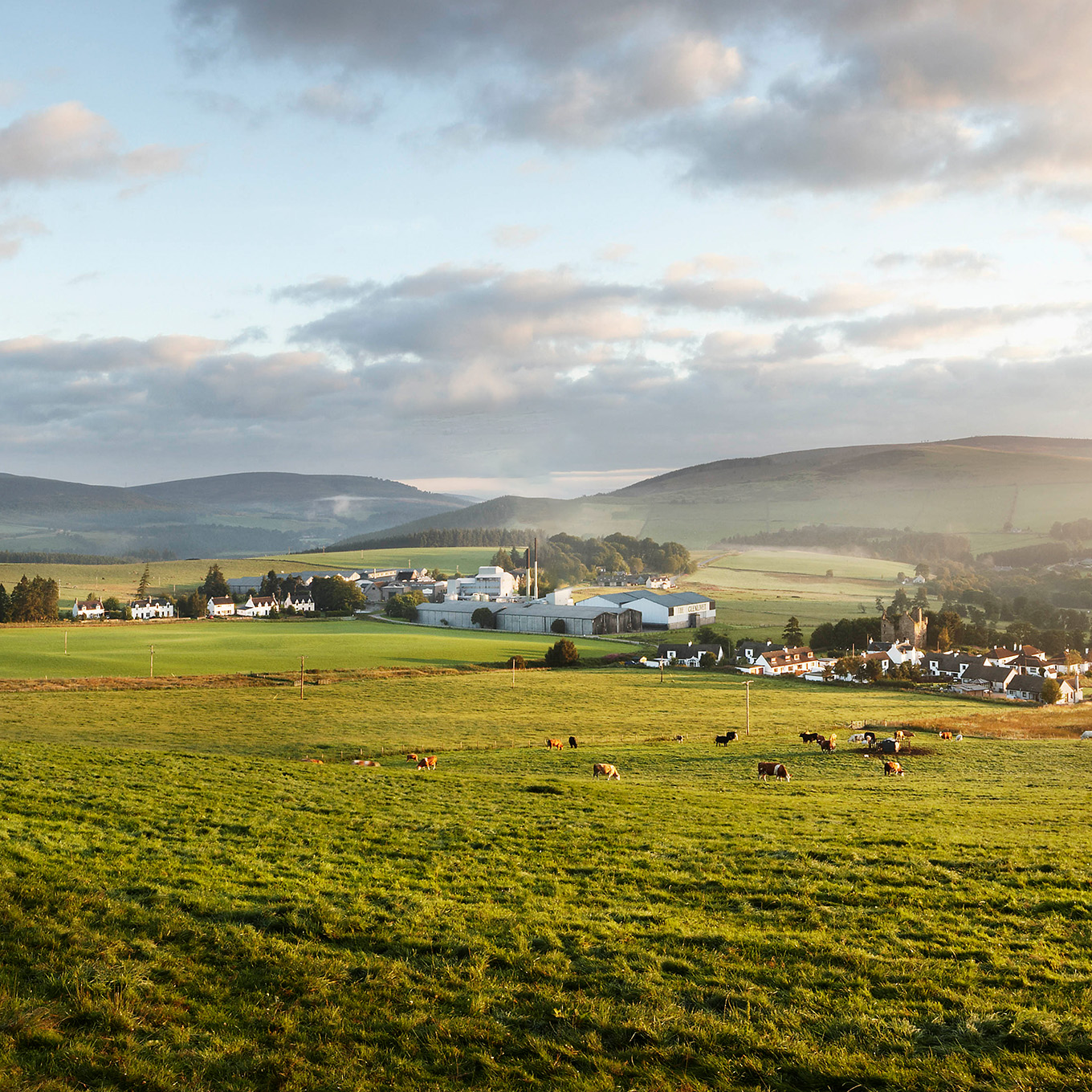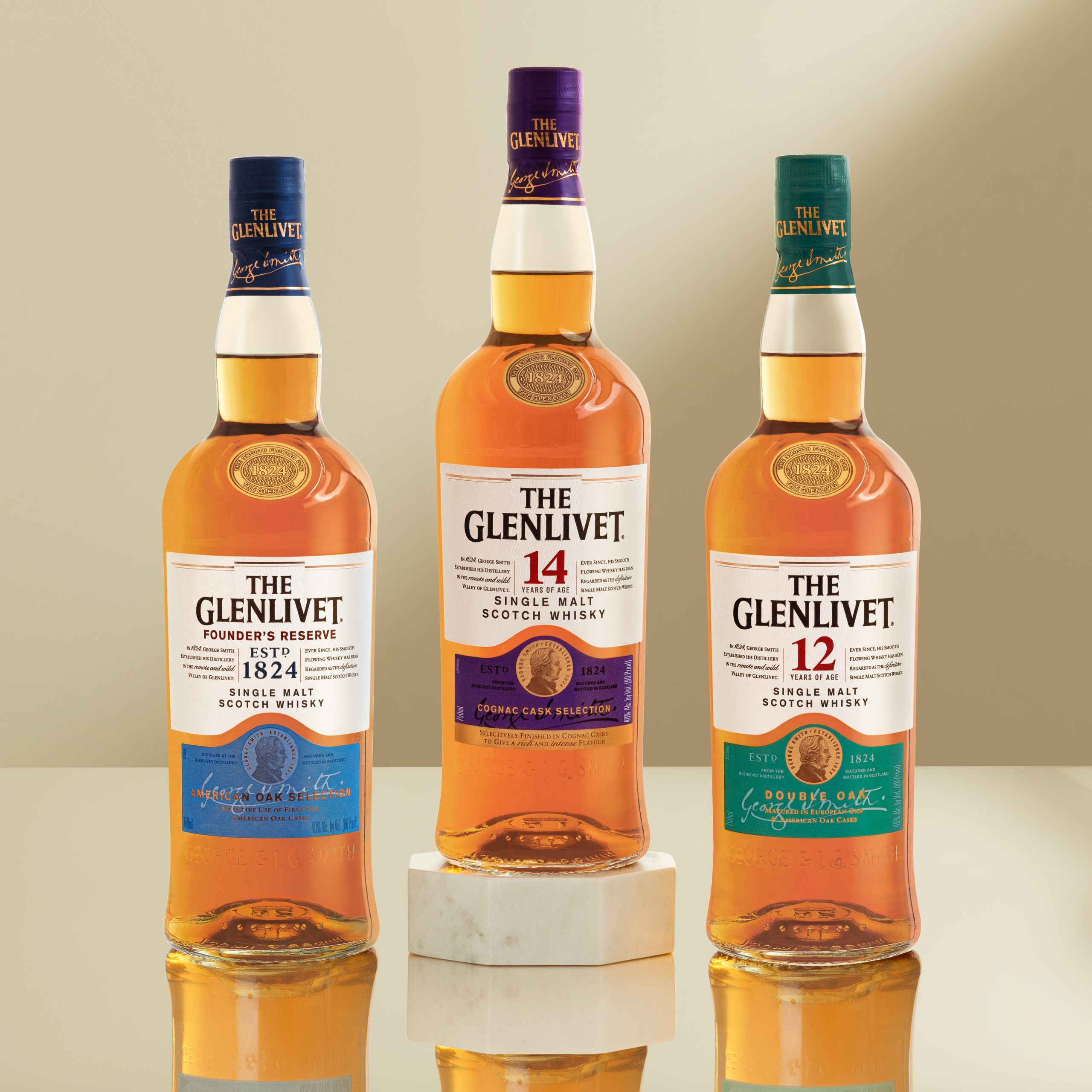A HISTORY OF SCOTCH
The first records of Scottish whisky date back to 1494. It’s here in the Exchequer Rolls that ‘water of life’ was first mentioned as ‘aqua vitae’. Over the next 200 years, whisky became pretty popular. Enough to attract the attention of parliament who began taxing the spirit in 1644. This led to a spike in illicit whisky distilling and smuggling for the next 150 years, with Scotch hidden in every nook and cranny of Scotland – even the clergy’s pulpit.
By the 1820s, more than half of Scottish whisky was enjoyed illegally, including the first bottles of The Glenlivet whisky as made by our founder George Smith. Even the King enjoyed a dram, demanding a drop of the infamous Glenlivet whisky on a state visit in 1822.
A year later, the Excise Act was passed which allowed sanctioned whisky making for a licence fee and payment per gallon. This saw George become the first legal distiller in the parish of Glenlivet and as the years went by, more and more producers started creating their own spirits, leading to Scotland becoming responsible for over £6 billion worth of Scotch each year.

